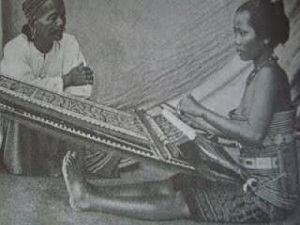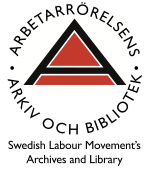- Seminariet ingår i serien global arbetarhistoria
Seminarium inom ramen för serien Global arbetarhistoria, med Elise van Nederveen Meerkerk, Wageningen University

Affisch från IIS. Tillhör ej ARAB:s samlingar
This presentation investigates developments in labour policies and social norms on gender and work from a colonial perspective.
At the beginning of the nineteenth century, work was seen a means to morally discipline the poor, both in the Netherlands and the Netherlands Indies. A prime example are the initiatives by Johannes van den Bosch, who first in 1818 established ‘peat colonies(!)’ in the Netherlands, where the urban poor were transported to become industrious agrarian workers.
In 1830, the same Van den Bosch introduced the Cultivation System in the Netherlands Indies, likewise, to increase Javanese peasants’ industriousness. During the nineteenth century, ideals and practices of the male breadwinner started to pervade Dutch working-class households, and child and women’s labour laws were issued.

Weefster Indonesië, Fotografi från IISG:s samlingar. Tillhör ej ARAB:s samlingar
Instead, legislation in the Netherlands Indies was introduced very late and under heavy pressure of the international community.
Not only did Dutch politicians consider it ‘natural’ that Indonesian women and children worked. What is more, they presented the inherent differences between Indonesian and Dutch women as legitimation for the protection of the latter: a fine example of what Ann Stoler and Frederick Cooper have called a ‘grammar of difference’.
Elise van Nederveen Meerkerk is Associate Professor at the Rural and Environmental History Department of Wageningen University, The Netherlands. She is a socioeconomic and labour historian, with a current research project ‘Industriousness in an Imperial Economy’ that focuses on imperial connections, labour relations and consumption patterns in Dutch and Indonesian households during the colonial period (ca. 1800-1940).
Plats: Arbetarrörelsens arkiv och bibliotek, Elektronvägen 2, 141 49 Huddinge
Seminariet hålls på engelska.
För mera information skicka mail till Silke.Neunsinger [at] arbark.se
Ingen föranmälan krävs.

